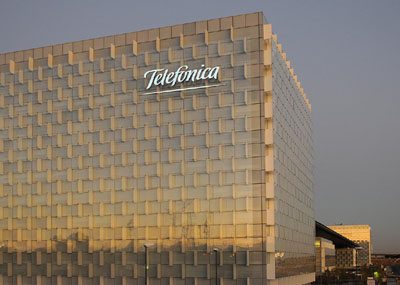The Spanish carrier’s CEO said he was not satisfied with the growth levels experienced by the company over the last years
Spanish telecom giant Telefonica has unveiled “Reconnect”, an internal program aimed at boosting growth over the next three years.
Telefónica’s Chairman and CEO José María Álvarez-Pallete said the company has seen growth in terms of revenue, OIBDA, customers and margins over the last three years. He highlighted that Telefonica has been also experiencing growth in investments to deploy and digitalize a next-generation network. In addition, the carrier was able to reduce company debt by close to €10 billion since June 2016 and keep attractive returns for its shareholders, he added.
“It is not enough, and we are not satisfied. We must aim to capture greater growth for all our stakeholders,” the executive said.
Alvarez-Pallete said that the telecommunications industry faces challenges such as regulations not adapted to the 21st century, loss of relevance of the industry, and the intensity of investment required to deploy 5G and fiber.
“We have already done much of our homework. We have transformed and digitalized our network, and applied artificial intelligence to our platforms, which will be essential for capturing growth opportunities,” said Álvarez-Pallete.
Telefónica’s “Reconnect” program will be focused on these key areas:
-Growth in relevance for customers through an excellent digital experience based on the simplicity and personalization of the offer, through the company’s technological platforms and the application of artificial intelligence.
-Revenue growth with a focus on monetizing an attractive value proposal which includes both Telefónica’s products and services, as well as those of third parties, under an “open ecosystem of partners” model.
-Growth in returns thanks to the growth of revenues, the efficiencies generated by digitalization, simplification and management based on the return on invested capital.
Alvarez-Pallete also said he was optimistic, despite the complex environment that the telecommunications industry is experiencing.
“Whether the glass is half empty or half full isn’t important,” he said. “The only thing that matters is that it can be refilled.”
Telefonica is also actively working towards the launch of 5G technologies in the Spanish market.
In January this year, Telefonica unveiled its 5G technological cities project, which will pave the way for the future deployment of 5G technology in Spain. Under this initiative, Telefonica partnered with European vendors Nokia and Ericsson for the initial deployment of 5G capabilities in the cities of Segovia and Talavera de la Reina.
Telefónica aims to convert the two Spanish cities into living laboratories over the next three years, with capabilities including the initial 5G capacity, the deployment of the new network and the development of use cases allowing their citizens and companies to benefit from the advantages of 5G.
Nokia was in charge of deploying 5G infrastructure in Segovia while Ericsson was expecting to focus on network deployments in Talavera de la Reina.
The Spanish operator said these two initial deployments will allow it to adapt its systems for the future rollout of 5G systems across the rest of the country. The telco also said that 5G use cases will be developed with concept tests on the new services, products, experiences and business models.

